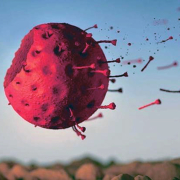Covid-19 – what 700 Epidemiologists Think Is Next
… an informal survey of 700 epidemiologists conducted by The New York Times earlier this week offers some insights.
- Of the Epidemiologists surveyed, the majority foresee that even with vaccines, it would probably take a year or more for many activities to safely restart, and that some parts of their lives may never return to the way they were.
- Some have begun going to the grocery store again, but don’t see vaccines making life normal any time soon.

- Even with coronavirus vaccines on the way, many epidemiologists do not expect their lives to return to pre-pandemic normal until most Americans are vaccinated. In the meantime, most have eased up on some precautions — now going to the grocery store or seeing friends outdoors, for example — but are as cautious as ever about many activities of daily life.
- A minority of the epidemiologists said that if highly effective vaccines were widely distributed, it would be safe for Americans to begin living more freely this summer: “I am optimistic that the encouraging vaccine results mean we’ll be back on track by or during summer 2021,” said Kelly Strutz, an assistant professor at Michigan State University.
- Half surveyed said they would not change their personal behavior until at least 70 percent of the population was vaccinated. Thirty percent said they would make some changes once they were vaccinated themselves.
Concerns
- Epidemiologists are worried about many unknowns, including
- how long immunity lasts;
- how the virus may mutate;
- the challenges of vaccine distribution; and the
- possible reluctance to accept the vaccine among some groups.
On the eve of the Covid winter, the epidemiologists are living with stringent precautions and new workarounds in place, far stricter than those of many ordinary Americans. Yet those precautions have evolved since last spring, as scientists have learned more about how the coronavirus spreads and what prevents it.
Of 23 activities of daily life that the survey asked about, there were only three that the majority of respondents had done in the last month: gathering outdoors with friends; bringing in mail without precautions; and running errands, like going to the grocery store or pharmacy.
The epidemiologists have almost entirely avoided other parts of pre-pandemic life — including activities that many Americans are doing now. Almost none said they had attended a sporting event, play or concert; met up with someone they didn’t know well; or attended a wedding or funeral.
“Being in close proximity to people I don’t know will always feel less safe than it used to,” said Ellicott Matthay, a postdoctoral scholar at the University of California, San Francisco.
Three-quarters of respondents said they planned to spend Christmas, Hanukkah or other winter holidays only with members of their household, or not celebrate at all, similar to how they spent Thanksgiving.
When asked about the safest and riskiest activities on the list, most epidemiologists agreed on these general principles: They are less worried about outdoor activities and about touching surfaces, and more worried about indoor activities and those with large groups. But even the epidemiologists didn’t all agree on their assessment of risk.
“Indoor venues with lots of people is the riskiest situation,” said Leland Ackerson of the University of Massachusetts. “Outdoors with few people, social distancing and precautions is the least risky.” He said that during the last month, he had hiked with friends, opened mail without precautions and run errands.
Herd Immunity
Most scientists say around 70 percent of the population will need to be immune for the United States to reach herd immunity, when the virus slows down significantly or stops. Moncef Slaoui, who is leading the government’s Operation Warp Speed vaccine development program, said this week that vaccines may roll out quickly enough for the United States to reach herd immunity by early summer. But scientists do not yet know if vaccinated people could still spread the virus.




Leave a Reply
Join the Community discussion now - your email address will not be published, remains secure and confidential. Mahalo.